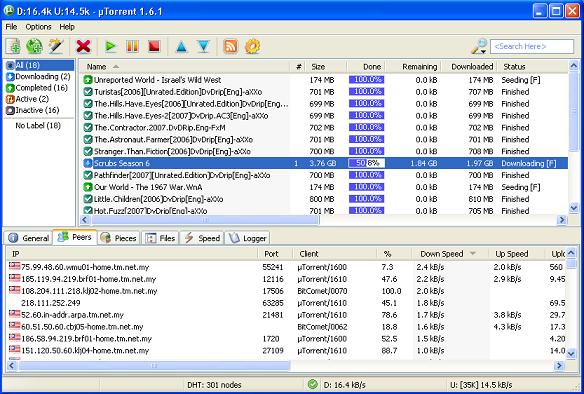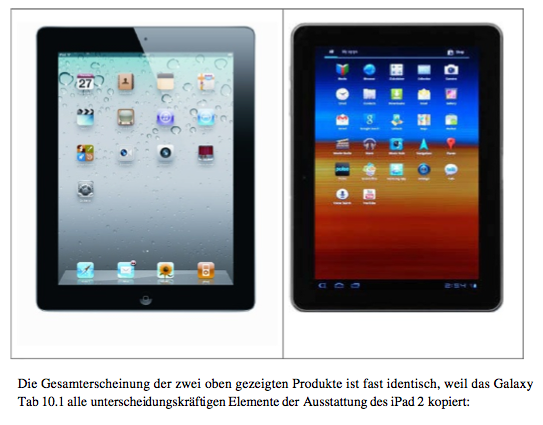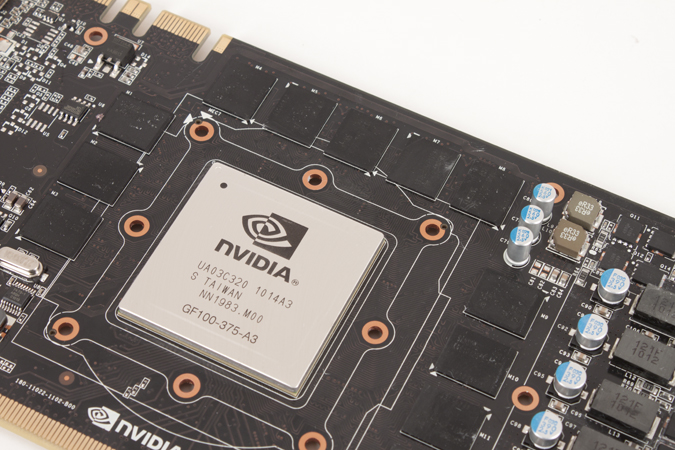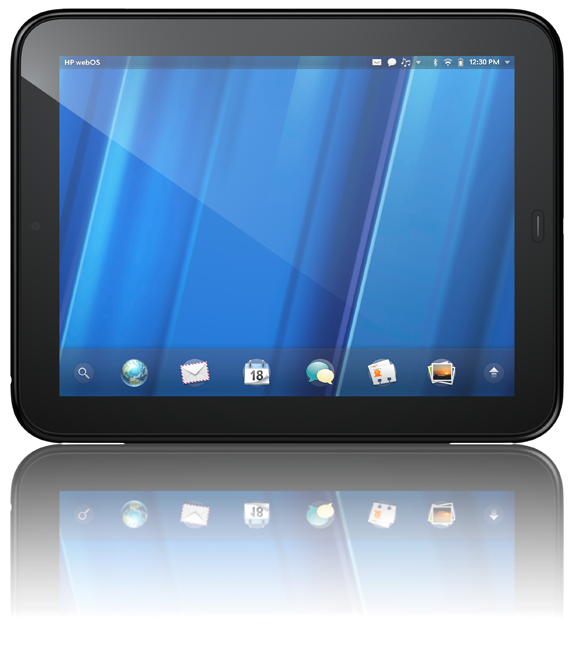News
 Remember how we told you that Fox was planning to create a larger delay in their online programming available to non-paid Hulu and Fox.com users? Well as you might have expected the people that are not “subscribers”, you know the ones that are being forced to wait longer, are now downloading these same programs from Torrent and other file sharing sites.
Remember how we told you that Fox was planning to create a larger delay in their online programming available to non-paid Hulu and Fox.com users? Well as you might have expected the people that are not “subscribers”, you know the ones that are being forced to wait longer, are now downloading these same programs from Torrent and other file sharing sites.
Right after the original announcement, which was designed (according to Fox) to improve their “authenticated” subscribers viewing experience, there was quite an uproar over the delay. Many felt that it was not about improving anything more than Fox’s revenue. After all no matter the delay the cable and satellite viewers are still getting the same experience.
Of course the timing is important as well, many online viewers are disappointed with the available content services right now. Netflix is raising their rates and managed to kick Windows Media Center and other non-web users off their service for a couple of days. All of this is going on while the ISPs are planning to cap the amount of data you can download each month. It makes us wonder about the state of online content. There seems to be a decided effort to push people away from online content and back to the cable and satellite services. The sad part is that this won’t work, but it will give the content providers and ISPs more ammunition to put restrictions, filters and worse on the internet. The same thing is going to happen with the Anon issue. The more we see this happen the more the powers that be can point to these things and say “see, we told you”.
Discuss this in our Forum
- Details
- By Sean Kalinich
- Hits: 2451
 Ok, I could not let this one pass. After hearing about the first instance of inaccurate evidence presented by Apple in court. I honestly thought that occurrence might have been nothing more that old images or an accident involving someone trying to fit both pictures in the same space. However, now we hear about another case where Apple has done exactly the same thing. This time the case in question is in the Netherlands where Apple is trying to get a permanent ban AND a recall of all Galaxy Smart Phones and tablets.
Ok, I could not let this one pass. After hearing about the first instance of inaccurate evidence presented by Apple in court. I honestly thought that occurrence might have been nothing more that old images or an accident involving someone trying to fit both pictures in the same space. However, now we hear about another case where Apple has done exactly the same thing. This time the case in question is in the Netherlands where Apple is trying to get a permanent ban AND a recall of all Galaxy Smart Phones and tablets.
At this point it seems that Apple is willing to lie, cheat and maybe even steal to get what they want (market dominance). I certainly hope that the courts hold Apple responsible on both counts. It is very clear that Apple feels it is above the law in the US where they have led a charmed life with the Patent office and the US International Trade Commission. Now they are taking this to the EU where they managed to get an ex-parte, non-hearing preliminary ban on the Tab 10.1 with inaccurate images as evidence. Thankfully, as of this writing the ban has been lifted (citing jurisdiction issues) in all countries in the EU except Germany. With mounting proof of falsified (or at least wildly inaccurate) visual evidence being used by Apple we would certainly hope these injunction requests are dropped for good and Apple required to face the consequences of their actions.
- Details
- By Sean Kalinich
- Hits: 2745
 When I hear the name of nVidia’s next-gen GPU code named Kepler all I can hear is Cave Johnson from Portal 2 saying, “Now if you're part of control group Kepler-7, we planted a tiny microchip, about the size of a postcard, into your skull.” It is interesting in that Kepler is supposed to be nVidia’s 28nm GPU offering. True a 28nm GPU is a lot smaller than a post card but the other half of Cave Johnson’s statement does seem to have some very nVidia parallels… “Most likely you've forgotten it's even there, but if it starts vibrating and beeping during this next test let us know, because that means it's about to hit about 500 degrees so we're gonna need to go ahead and get that out of you pretty fast.”
When I hear the name of nVidia’s next-gen GPU code named Kepler all I can hear is Cave Johnson from Portal 2 saying, “Now if you're part of control group Kepler-7, we planted a tiny microchip, about the size of a postcard, into your skull.” It is interesting in that Kepler is supposed to be nVidia’s 28nm GPU offering. True a 28nm GPU is a lot smaller than a post card but the other half of Cave Johnson’s statement does seem to have some very nVidia parallels… “Most likely you've forgotten it's even there, but if it starts vibrating and beeping during this next test let us know, because that means it's about to hit about 500 degrees so we're gonna need to go ahead and get that out of you pretty fast.”
Now, I am saying this with humor, but we have seen some rather hot GPUs from nVidia over the years. If Kepler has the same issues that Fermi had then the first run could be quite the space heater. Of course, if you ask the typical gamer they will more than likely tell you that they do not care as much about the heat as long as the FPS is through the roof.
Which brings us to the real crux of the issue, nVidia has already admitted that they will be at least a month or more behind their original timeline for this release (like Fermi) and they will be far behind AMD’s Southern Islands. In the gaming and GPU market it is often the person that gets to market first that wins the acceptance. This is not like the DX11 shift when it was Fermi Vs the Other Islands from AMD where there were almost no compelling games using that technology. Now we are looking at a few good DX11 games so we are going to see people looking to pounce on the next generation products as long as they are faster than what is currently on the market from both companies and the prices are right.
nVidia really needs to get on the ball to get their timelines back in order or they do stand to lose quite a few Holiday sales to AMD which will hurt their own sales numbers when they finally do get Kepler out the door.
Discuss this in our Forum
- Details
- By Sean Kalinich
- Hits: 4067
 Less than a year ago HP bought Palm for their WebOS and Mobile business. At the time HP made the claim that they were going to move forward with Palm and maintain the mobile side of things. Now they want to shut down the WebOS business and (if the announcement is to be believed) either spin off or close down their PC business. Reading the announcement from HP it sounds like they are cutting some dead weight and cleaning up after some disappointing losses. However, if you dig a little deeper you will find that HP is looking to make a business shift. It is no secret that the consumer market (at least the PC and software market) is something of a loss-leader. This means that you expect to lose a little money on your PC systems while making it back in service, and support costs. The problem is that companies like HP are losing their support money to people like Best Buy, Staples, and others who now have their own service departments that they make money off of.
Less than a year ago HP bought Palm for their WebOS and Mobile business. At the time HP made the claim that they were going to move forward with Palm and maintain the mobile side of things. Now they want to shut down the WebOS business and (if the announcement is to be believed) either spin off or close down their PC business. Reading the announcement from HP it sounds like they are cutting some dead weight and cleaning up after some disappointing losses. However, if you dig a little deeper you will find that HP is looking to make a business shift. It is no secret that the consumer market (at least the PC and software market) is something of a loss-leader. This means that you expect to lose a little money on your PC systems while making it back in service, and support costs. The problem is that companies like HP are losing their support money to people like Best Buy, Staples, and others who now have their own service departments that they make money off of.
This leaves companies like HP (who bought up Compaq thinking that would help sales) out of touch and losing more money than they should on their PCs. So what do you do when this happens? Well you take a leaf from IBM’s book. You sell off your PC business and shift back to the Enterprise. Here you can sell a support contract for $3-4,000 per unit (and more in some cases). Corporations that purchase servers and server accessories demand these and pay for them willingly. So HPs announcements today are nothing more than a way of saying to the community at large “Hey, wanna buy our PC and Mobile divisions? We do not want them anymore”. I would not be surprised to hear about offers for both departments soon.
Now the question is; can HP really compete with IBM and Dell? If a recent shift in enterprise purchases is any indication HP is in for a rough year.
Discuss this in our Foum
- Details
- By Sean Kalinich
- Hits: 2666
 In news that surprises no one HTC has filed a complaint and suit against Apple today for… you guessed it Patent Infringement. All of this began not too long ago when Apple started its campaign against Android Phone makers claiming that Samsung, HTC and a few others have violated Apple’s patents on various functions and even the look and feel of their method of finger scrolling. Apple has one the first round in many of these cases, but things seem to be turning around.
In news that surprises no one HTC has filed a complaint and suit against Apple today for… you guessed it Patent Infringement. All of this began not too long ago when Apple started its campaign against Android Phone makers claiming that Samsung, HTC and a few others have violated Apple’s patents on various functions and even the look and feel of their method of finger scrolling. Apple has one the first round in many of these cases, but things seem to be turning around.
It has recently come to light that Apple’s evidence in the Samsung Galaxy Tab 10.1 case is inaccurate. Apple’s legal team knowingly or accidentally submitted false evidence to show that the Tab was a copy of the iPad and iPad2. We do not know the outcome of this incident yet (but we are keeping our eyes open) but it is probably not going to be good for Apple.
Meanwhile HTC has just announced that it is filing its own patent suit against Apple that covers not only the iPad, iPhone and iPod but also every MAC computer with wireless technology that has “Wi-Fi capability that allows users to wirelessly network multiple devices at home, at work, or in public” as covered by US Patent 7,417,944. There is more to the complaint and suit which covers three specific patents (U.S. Patent Nos. 7,417,944, and 7,672,219 and 7,765,414). This is interesting as HTC has not even broken out their S3 Patents yet. These patents came from a purchase of ADC Telecommunications Patents back in April of this year that cover many wireless and even 4G technologies. ADC was later bought by Tyco Electronics (which became TE Connectivity) who sold its wireless communication division to Harris Corp.
Now think about this, if the ADC Telecommunications patents do not cut it they can always push for action based on the new S3 Patents HTC has recently picked up. As we said a couple of days ago; things are getting rather interesting.
Talk about this in our Forum
- Details
- By Sean Kalinich
- Hits: 2999
More Articles …
Page 561 of 570




